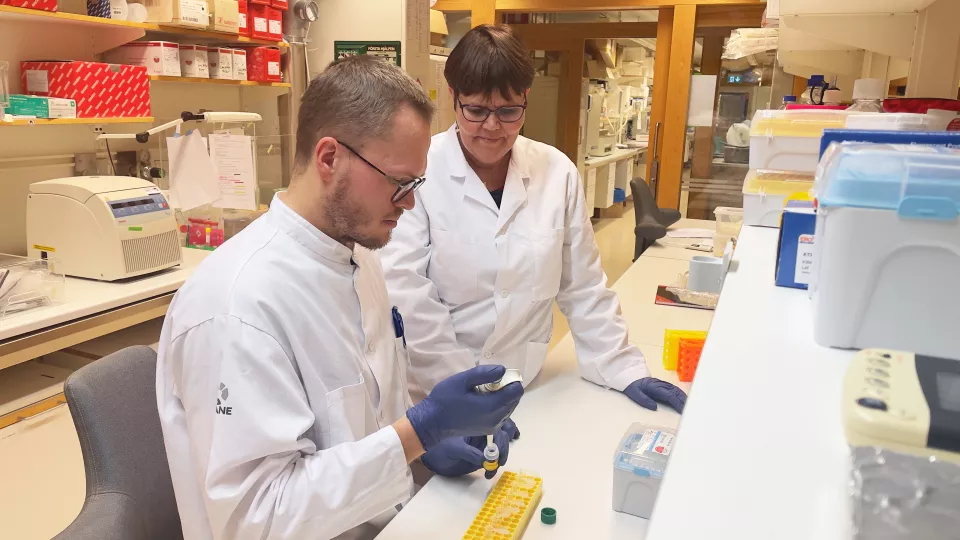Reduced insulin secretion leads to elevated blood glucose levels and an increased risk of serious complications, such as cardiovascular disease and nerve damage. The exact mechanisms behind impaired insulin secretion in type 2 diabetes are not fully understood, despite extensive research.
For several years, Lena Eliasson's research group has explored mechanisms that regulate insulin secretion from beta cells situated in the islets of Langerhans within the pancreas. Together with researchers at Newcastle University, the researchers now demonstrate how the protein IGFBP7 affects the ability of the beta cells to secrete insulin.
The protein IGFBP7, which is secreted from the liver and has been studied in relation to heart failure and kidney damage, turns out to affect insulin secretion in type 2 diabetes.
"It is an interesting protein to study since it is not known how it affects insulin secretion. IGFBP7 also appears to be important for other organs in addition to the pancreas, such as heart, liver and kidneys. We need to see the big picture when it comes to type 2 diabetes, and it would be interesting if IGFBP7 can be used as a drug target for future treatments that may improve the function of several organs," says Efraim Westholm, first author of the study in iScience, who recently defended his thesis at Lund University Diabetes Centre.
Reduced insulin secretion
When the researchers studied the protein IGFBP7 in relation to type 2 diabetes, they discovered that levels were elevated in beta cells from people with the disease. Next, the researchers investigated the effect of IGFBP7 on beta cells from people who did not have type 2 diabetes.
When the researchers treated beta cells from people without type 2 diabetes with IGFBP7, they saw a reduction of insulin secretion compared to the control group. The researchers could also see that the cells that had been treated with IGFBP7 had lower expression of another protein that is important for good cell function.
“This suggests that elevated levels of IGFBP7 impair the function of beta cells and their ability to secrete insulin. We believe that our finding may be an important part of the explanation as to why we see a reduction of insulin secretion in type 2 diabetes," says
Lena Eliasson, professor of experimental diabetes research at Lund University.
Increased insulin secretion
The protein IGFBP7 is regulated by a gene with the same name. When this gene was knocked out in beta cells from people with type 2 diabetes, the researchers found an increased release of insulin. The results suggest that IGFBP7 may be a drug target for type 2 diabetes.
"We need to conduct more studies with cells from more participants to better understand how the protein is expressed to determine what role it plays in type 2 diabetes. We hope that the knowledge can be used to develop new drugs in the future. One treatment option could be to reduce the expression of the protein in people with type 2 diabetes to improve the secretion of insulin," says Lena Eliasson, professor of experimental diabetes research at Lund University Diabetes Centre, who has led the study.


